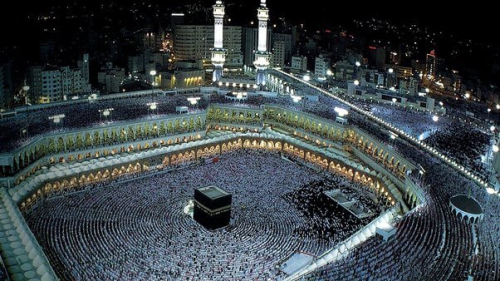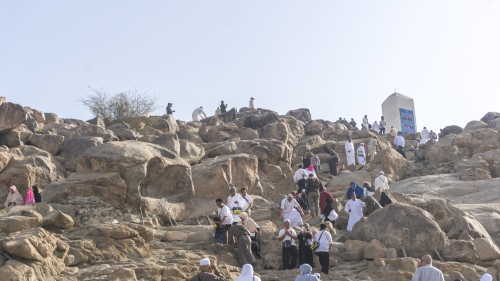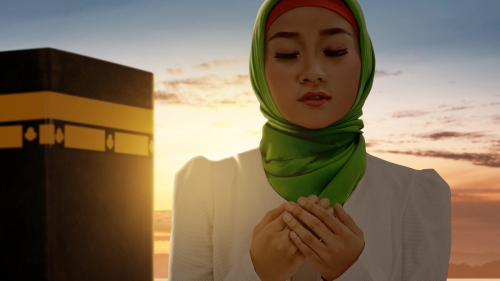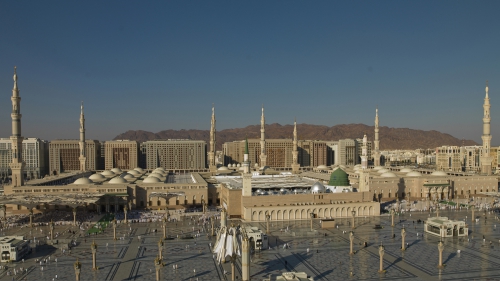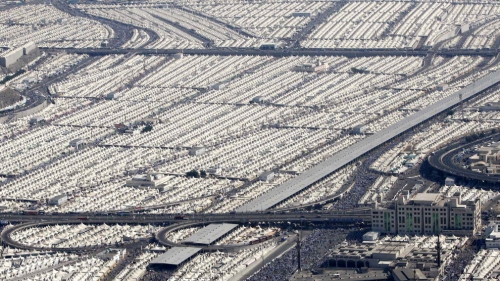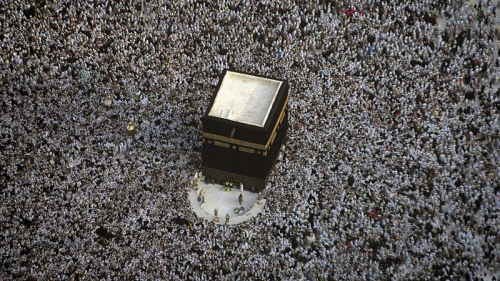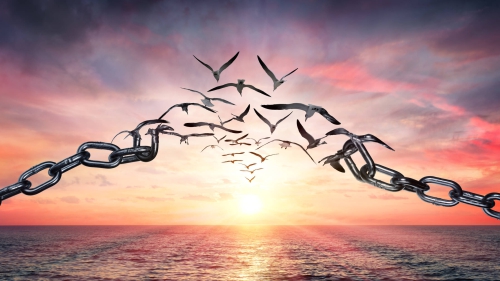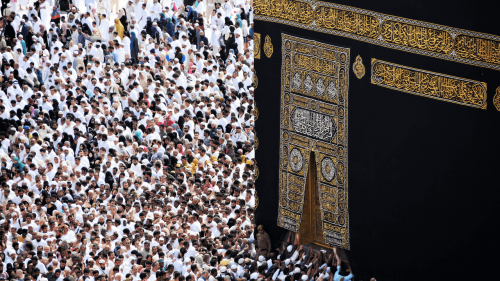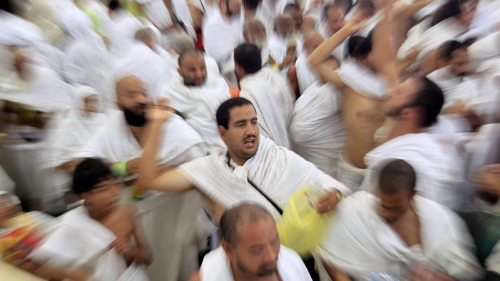The Sacred Journey

Nadia Saifuddin awoke with her back to the desert floor. A crowd of strangers hovered over her as she drifted in and out of consciousness not knowing where she was. Some checked for a pulse, claiming not to find one. "La illaha illallah, Muhammadur Rasulallah,"" (There is no God but Allah, and Muhammad is His Messenger) called out an observer. But a homeopathic remedy put beneath Saifuddin's nose raised her to consciousness, allowing the completion of her Hajj (pilgrimage) the following day.
Her fainting was a result of being overwhelmed by witnessing thousands of people flowing into Mina, where pilgrims slept in the darkness of night beneath the desert stars.
"Seeing so many (people) gathering in one place felt like I was witnessing The Day of Judgment," said Saifuddin. "It made me feel claustrophobic and dizzy, and then I fainted."
In the beginning of her Hajj, Saifuddin could easily distinguish the western pilgrims from all others. "You could see air conditioning units in their tents and other luxuries the rest of the people didn't have.
"But at Mina and Muzdalifah, you truly can't tell a King from a beggar. The social status of the person next to you is known only by God." Such an experience proves a difficult sacrifice for those coming from the West; who are more accustomed to a materialistic way of life, said Saifuddin.
Saifudin's experience was one of approximately twenty thousand Hujjaj (pilgrims) who traveled from America this year to the holly city of Mecca.
The Muslim Community Association of Santa Clara, Calif. held a welcoming party for the returning pilgrims in their community. Pilgrims shared their experience through power point presentations and micro-phoned speeches before an avid crowd who have yet to make the journey. A PBS filming crew eagerly recorded the event for an upcoming documentary on Muslim Americans.
Pilgrims described the overwhelming experience of the Hajj; how viewing the Ka'bah (the house of God) for the first time filled their hearts with emotion and warmth. "Throughout my life, I faced the direction of the Ka'bah in prayers," said one Haji. "When my eyes gazed upon it for the first time, I couldn't hold back the tears."
Scholars told the Hujaaj to make a prayer when being in such a state because the first du'a (personal prayer) made upon seeing the Ka'bah was guaranteed to be accepted.
Speakers described how a circumambulation of the sanctuary proceeded the entry of the Haram Al-Shareef (the inviolate zone), where pilgrims begged Allah (God) for forgiveness to attain nearness to Him.
The pilgrims then advanced to pray two rak'ats (ritualized prayers) behind the Maqam of Ibraheem (Abrahamic station), the prophet who built the Ka'bah with his son Ismaeel (Ishmael) nearly four thousand years ago as the first permanent structure for worshiping Allah alone. According to some traditions, the structure was laid on an even older foundation built by the first man, Adam.
For some pilgrims, Hajj was a time to see both the good and the bad. Kamran Habib, a software engineer from San Jose, Calif., completed his Hajj for the second time, but was disappointed with the level of patience he saw in his fellow American pilgrims.
"Even though the American Muslims are very educated, you can see them loosing patience quick," said Habib. "I think the biggest fitnah (trial) for the American Hujjaj was food. I saw two older sisters fighting in the Haram over pizza, each believing they deserved it more than other."
Habib does admit though that it was nice to hear English being spoken in a crowd of over a million people. "On a positive note," said Habib. "A brother was told by an inhabitant of Mecca that he could always point out the American Hujjaj even if they weren't speaking English. He said the majority of the Americans were distinguished because they were young, (unlike pilgrims from other countries who wait until old age before performing the Hajj); and because the American men often treat their wives better, by holding their hands and being nicer to them than others."
Tahir Anwar, the Imam of the South Bay Islamic Association in San Jose, Calif. led a group of 300 from across the country to Mecca this year in one of many pilgrimages he has performed.
Anwar said he holds high expectations for the American Hujjaj, and holds a five hour workshop for his students before departure. The workshop prepares the pilgrims for the worst case scenario, for patience, and for treating the land and people of the sacred land with respect.
"You may not get all the luxuries you're used to," said Anwar, "But this is a spiritual journey."
Anwar reported this last Hajj for CNN and is preparing a multi-media video tape that actually shows him performing the Hajj from Mecca and Medina to help better prepare future pilgrims.
Anwar said that the influx of the Hujjaj from America has increased tenfold in the past few years, and that tour operators couldn't get Visa's for many.
The Imam said he always advices people preparing for Hajj to do three things; "Number one - go as early as possible," said Anwar. "Hajj is a spiritual journey but it is also a very physical journey. Don't wait until you're too old and weak to do so. Number two - logistically speaking, make sure you do your research before you choose your tour operator. And three - Be prepared. This is the biggest thing Muslims from America need, preparation."
Anwar explained that Muslims either have the "back home" mentality of waiting until they are older to go, or they will have very little knowledge once they get there.
"Have you ever seen the movie Rocky?" asked Anwar. "Well Hajj is a bit like Rocky, you really have to prepare yourself for the challenge!"
As for Kamran Habib and Nadia Saifuddin, both say they already long for returning to Mecca. "Whenever I pray," said Saifuddin, "I imagine I am in front of the Ka'bah and miss it."
"Leaving Allah's House was really sad for me," said Habib. "But at the same time I was happy to come home to what Allah gave me, my wife and kids."







